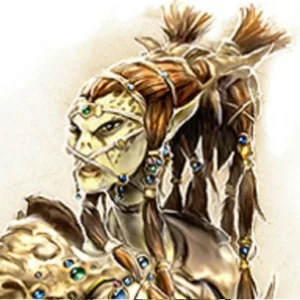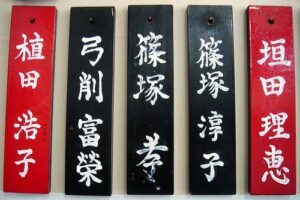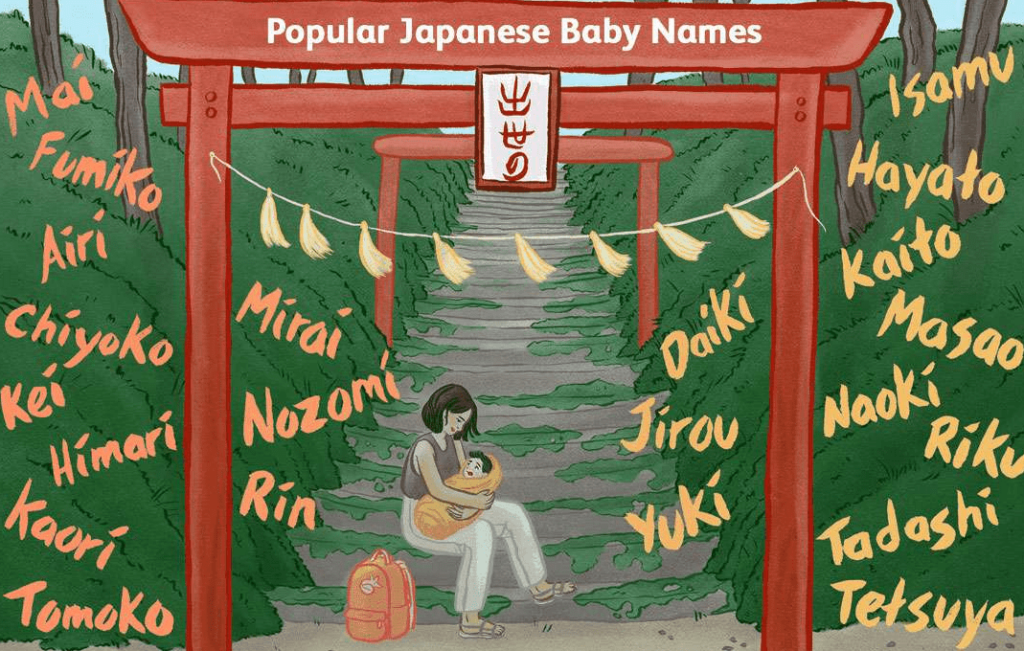

We often see or heard Japanese names in both comics and anime shows. But one noticeable part we observe is how the Japanese use their last names. They follow a naming convention where Japanese last names are mentioned first before their given name. However, this is not unique to Japan since this method is shared with its neighbors China and Korea.
Many Japanese last names are existing in present-day Japan. According to Motoji Niwa, a researcher who dedicated his study to Japanese family names, there are approximately 300,000 existing last names in Japan. In his research, he found out that, despite this huge number, only 7000 of those are often used and are shared by around 96% of the entire Japanese population.

To have a brief overview of why Japanese names multiplied, we can look back on Japan’s history during its first era. Japanese civilization flourished from different clans which later on united to become a single kingdom. But before that, these clans are at constant war with one another. Every clan is made of people related by blood or a common ancestor. Marriage also plays a vital role in the foundation of a clan. Two different clans can combine their strength and number through an arranged marriage of the other clan leader’s son and daughter.
As time went on, more powerful clans rise into power. One good example is the Yamato clan, who became well accustomed to their neighboring clans and made stronger ties with them. During the Yamato era, their leader chooses a clan name for each joint clan as well as a title, or a kabane. From this clan-naming system, different clan names started to emerge and were carried on up to this day.
In this article, we’ll course you to some of the awesome Japanese last names that are existing in the past and present. Read on!
Ancient Japanese naming system segregates the clans according to their status in the kingdom. Clans are subdivided into three titles, the Omi, Muraji, and the Tomonomiyatsuko. The Omi status is the highest since they are comprised of clans that are loyal to the kingdom, followed by the other two. Commoners of each clan, are given the title Bemin.
Omi Last Names | Muraji Last Names | Tomonomiyatsuko Last Names | Commoners Last Names |
Izumo | Otomo | Yamatonoaya | Suzuki |
Katsuragi | Inbe | Inukai | Yamamoto |
Kose | Mononobe | Tsukishine | Yamada |
Abe | Nakatomi | Yazume | Shimizu |
Heguri | Haji | Shitori | Kobayashi |
Kasuga | Yuge | Hattori | Tanaka |
Hata | Owari | Hata | Ikeda |

| Japanese Last Name | Meaning |
| Kiyama | Translates as “Tree Mountain” |
| Sato | Translates as “To Assist”. Sato is the most common Japanese last name. |
| Makino | Translates as “Pasture Field” |
| Hayashi | Translates as “Forest” |
| Ito | The Japanese term for a yarn or a string |
| Oba | Meaning, “Large Garden” |
| Sasaki | Derived from the word misosazai, describing a wren. |
| Shimizu | Translates as “Pure Water” |
| Tanaka | Translates as “Rice Field” |
| Sora | The Japanese term for sky |
| Aya | Kusakabe | Ozutsuki | Sugawara | Adachi |
| Amakusa | Anyama | Date | Chiba | Fuji |
| Goto | Hatekeyama | Hatano | Inoue | Meda |
| Manabe | Matsunaga | Mikumo | Oda | Satomi |
Not all family names in Japan have survived the test of time. Some names are already on the brink of disappearing from existence. Additionally, there are unusual last names that are existing and you will be surprised how hilarious those names are. Below are a few rare and unusual Japanese last names that are now minimally used in Japan.
Unagi
Translating as “eel” in the English language, it is estimated to be used by only two families as of the year 2014, making it the second rarest Japanese last name to date.
Pengin
The last name Pengin is pronounced the same as Penguin. This last name is only used by one family and is probably one of the most unusual surnames to exist.
Hifumi
Hifumi is a real Japanese family name that means “1, 2, 3”. Family names that are unusual and weird as this are not a big deal in Japanese culture.
Nagomi
Synonymous with the word Shime, both are rare and unusual Japanese last name that translates as “7, 5, 3”.
Tsubomi
Tsubomi is one of the unusual Japanese surnames that means April 1st. Or sometimes they simply denote it as a date for April Fools.
Mawarimichi
Translating as “a detour” in English, this family name is also considered one of the rarest with only 3 families using it.
Akasofu
This Japanese last name translates as Red Grandfather in English. We wouldn’t be surprised if we use the color to describe things, but it is very unusual for it to be described to a granddad, much worse, as a family name.
Senju
The name Senju is an old term to describe a teacher or educator. This is popularized from the anime Naruto, describing the Senju family as a powerful ninja clan. Today, Senju is no longer used to identify teachers because sensei is more often used.
We were able to discuss a short history of how Japanese last names are given. In ancient Japan, the emperor decides on the clan’s family names resulting in numerous last names appearing one after the other. While these names are exclusive to certain groups of families, newer last names still emerged due to clan merging or branching.
As you can observe, common Japanese last names derived their meaning from the surrounding nature or a description of a person or place. Noble and aristocratic families also have surnames that are exclusive to their circle as they have a direct tie to the royal family.
Due to continuous evolution and change in family names, some old last names became obsolete and rare over time. Additionally, unusual names do exist in present-day Japan.
The article is about Japanese last names, their history, and some popular ones with their meanings. It also covers the Japanese naming convention where last names come before given names, and the fact that Japan shares this naming convention with China and Korea. The article mentions that there are around 300,000 last names in Japan, but only 7,000 of them are often used and shared by 96% of the Japanese population. The article also provides a brief history of how clans formed in ancient Japan and how the Yamato era gave rise to different clan names.